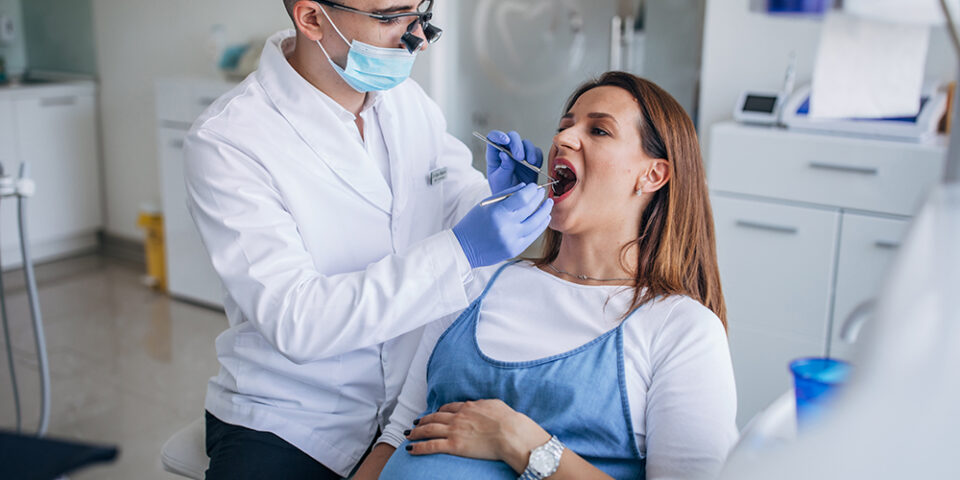Dental care during pregnancy
Pregnancy causes changes to just about every part of your body, and it seems like there’s an endless list of new information on what you need, and what you should avoid, during this exciting, sometimes stressful time. Should you change up your dental care during pregnancy? Scott Balzer, DDS, explained why pregnant women are more at risk for dental problems and what you can do to keep your teeth healthy before baby arrives and beyond.
Is it safe to have dental work done when you’re pregnant?
“Yes, it is not only safe to have dental work while you’re pregnant, but routine dental cleanings and exams are highly recommended,” said Dr. Balzer.
Cavities and gum disease don’t take a break during pregnancy, and you can even be at a greater risk of developing dental issues while pregnant. If dental treatment other than a cleaning is necessary during pregnancy, the second trimester is the preferred time. Elective dental treatment, however, will usually be performed after giving birth.
Why are pregnant women more at risk for dental problems?
“Many changes to your hormones and body happen during pregnancy that can result in changes in the mouth as well,” said Dr. Balzer. “If morning sickness is an issue, your mouth can become a more acidic place, leading to increased risk of cavity formation. Cravings for sugary snacks can also make you more likely to form new cavities during your pregnancy.”
Pregnancy also makes you more likely to experience gingivitis due to an increased inflammatory response to dental plaque, making the gums swell or bleed more easily.
What can happen if these problems aren’t treated?
“Whether cavities develop during pregnancy, or already existing cavities go untreated for the time you are pregnant, they can progress into larger cavities which may eventually require root canal or tooth extraction to treat,” said Dr. Balzer. “Dental abscesses, or infections, can become a serious health risk both to you and the developing fetus.”
Untreated pregnancy gingivitis will likely be painful and can advance to periodontal disease, which can include bone loss and tooth mobility. According to the Centers for Disease Control and Prevention (CDC), periodontal disease has been associated with poor pregnancy outcomes, including preterm birth and low birth weight.
When considering long-term effects after birth, a mother with untreated dental disease has a much higher likelihood of passing on cavity-causing bacteria to the child.
What are some dental care tips that can help during pregnancy?
Dr. Balzer recommended rinsing with a baking soda solution (mix 1 teaspoon of baking soda into a lukewarm glass of water) to help neutralize the acid left in the mouth during morning sickness. Maintain excellent oral hygiene including brushing with a fluoride toothpaste and flossing. If your pregnancy cravings occur during the night, be sure to brush your teeth before going to bed. If neglected, the sugar will bathe your teeth all night and increase the chances of developing a cavity.
“Finally, I recommend routine dental cleanings and exams every six months to determine if you have any dental needs,” said Dr. Balzer. “If pregnancy gingivitis is an issue, more frequent dental cleanings may be recommended.”
Find a doctor
Whether you’re looking for a primary care physician or need to see a specialist, we’re here to help with experienced, compassionate care near you.
Find a Doctor

